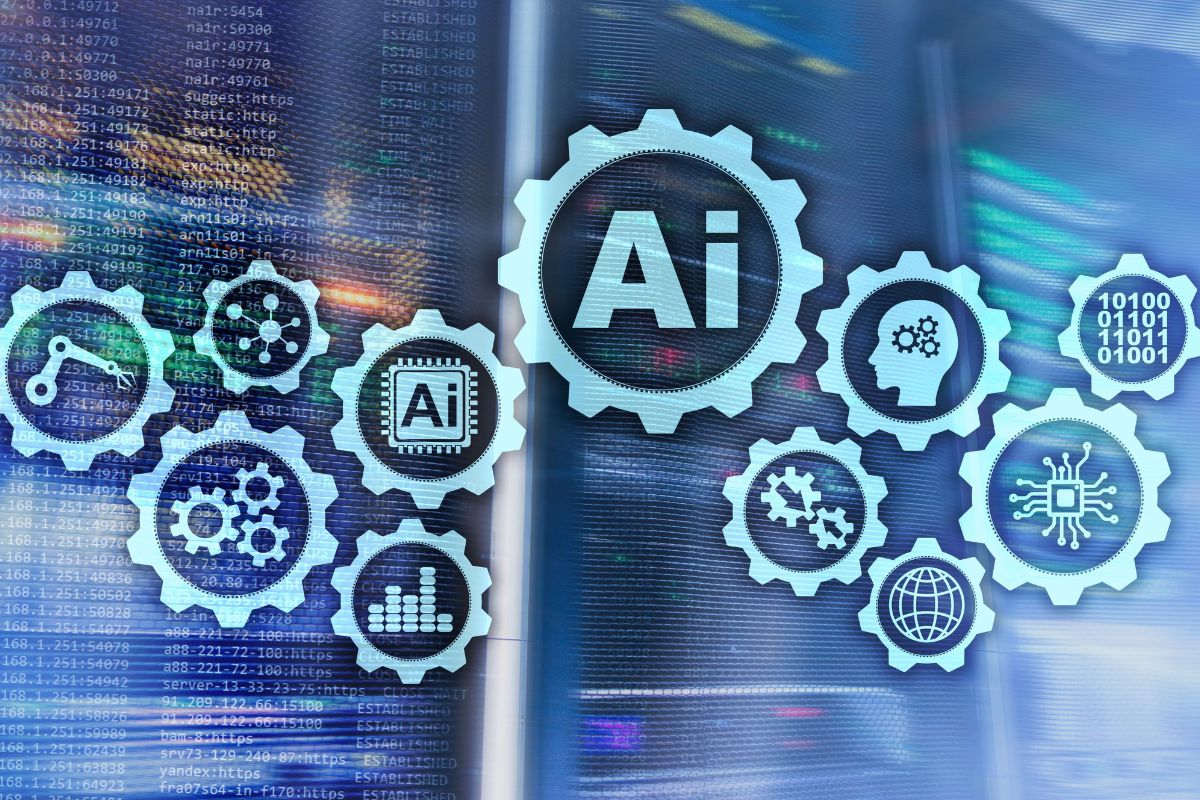Generative AI is the progressive advancement in technology, which allows a machine to generate content at par with the creativity of humans. This is a relatively new technology that primarily employs sophisticated mathematical models to generate new content like texts, images, music, and even videos.
Thus, generative AI goes beyond mere computation, making it possible for different sectors to receive radical overhauls. Since the stakeholders of generative AI are recognizing its utility at this level, it is going to become easier for businesses and organizations to adapt to it, and various aspects of processes along with user experiences and innovation are going to reach heights.
Enhancing Creative Industries
Concerning the practical application of generative AI, the creative industry has received the largest effect. These AI applications help in writing for example, they can help one come up with writing topics, write an article, or even write a story from the outline provided.
This not only saves time but also helps to revive ideas and energy through the change of pace because a new idea may look at the problem in a completely different manner. Likewise in fields of design, there can be graphics, patterns, and visualize that may require a lot of time to be produced by humans and can be instantly created by generative AI.
That means designers can take AI relationships, for example, and turn them into creative and unique graphic designs. In addition, generative AI is also used in the music sector. Using AI, music pieces in different styles can be developed as the base that the composers and musicians can further develop and build on.
It is a symbiosis between human force and artificial intelligence recommendations that may result in the generation of interesting music. While using generative AI, creatives avoid time-consuming and monotonous work, which in turn lets them think strategically and come up with innovations, boosting the culture of the industry.
Revolutionizing Healthcare
Sustainable development of generative AI is evident through the improvement of the diagnosis of diseases and treatment through artificial intelligence. One of the biggest benefits of employing generative AI in the sphere of healthcare is their capability to process a large amount of medical data promptly and with high levels of accuracy.
With patient record data, medical images, or genetic data, machine algorithms can decipher patterns that would be very difficult to determine by human eyes. This capability helps medical personnel to diagnose diseases at an early stage and with higher accuracy, hence enhancing the prospects for the patient’s recovery.
Furthermore, generative AI can also help in creating, the best treatment strategies. Driving through the patient’s specific data and the medical history, the AI system can provide recommendations for the treatments that have the highest likelihood of effectiveness.
This tailored way of delivering treatments increases the possibility of healing and lessens the adverse impacts, which will improve patients’ health experiences. Apart from its applicability in the diagnostic area, generative AI can prove effective in solving administrative issues within healthcare facilities.
For instance, systems using artificial intelligence can schedule patient appointments, deal with billing issues, and process insurance claims thereby cutting short the working hours of the providers. This results in enhanced coverage of time by personnel in offering their services to patients leading to quality service delivery and satisfactory services.
Transforming Marketing Strategies
Marketing is another of area in which they are radically transforming the usual approaches, giving companies new tools for communication with consumers. Thus, consumers’ intermittent control of marketing communications can be explained by the ability of AI algorithms to segment consumers’ buying processes and develop tailor-made advertising messages.
It increases the targeting of marketing communications, which makes them more attractive to consumers and generative AI in sales and marketing helps the business strategies. For example, AI can compile data from social media, the history of people’s browsing, and their purchases to create a highly defined consumer profile.
From these profiles, generative AI can create customized messages for businesses such as emails, advertisements, and product promotions that will most likely capture the attention of the users. It also makes the target customers have a better experience, thus enhancing the chances of conversion, and ultimately making the intended products and services to sell significantly.
In addition, generative AI can efficiently improve many a marketing campaign by supplementing real-time analysis of its outcomes to the tweaks. Through learning what is effective and what is not, the AI systems can fine-tune marketing strategies for better results in real-time analyzing the effectiveness of every used resource, thus helping in optimizing the usage of resources for improved returns.
marketing in today’s business environment can therefore be described as dynamic and flexible hence making the difference between businesses in the market and growth and success.
Redefining Customer Service
The new advancement in generative AI is revolutionizing customer service through chatbots and virtual assistants. These are the capabilities of the AI solutions that include a real-time response to customer questions, complaints solutions, and other necessary information.
Being based on NLP and machine learning algorithms, generative AI chatbots can provide relevant answers to almost any customer’s request, and therefore, ensure a perfect service experience. When it comes to the advantages of using an AI for customer service it must be noted that it is available practically 24/7.
Compared with human agents, AI systems can work continuously round the clock and customers can get help at any time. This will make the customers happy creating trust in the brand as they seek the products and services they need.
Also, consumer AI chatbots may engage in several convergent conversations at the same time, thus not taking a lot of the consumer’s time as compared to a human being. Generative AI can also help human customer service representatives by supplying them with information in real-time and recommendations.
For instance, by using AI to study customer engagements, and then, advise suitable actions or solutions for an agent to take, this agent can resolve more problems in a shorter time and accurately. Thus, the use of AI in conjunction with human agents improves the overall quality of the customer service provided as well as guarantees appropriate treatment of delicate issues.
Conclusion
Generative AI is a revolutionary concept that can revolutionize the range of industries and how humans interface with AI. In this case, applying this innovative technology can result in increased efficiency and automation of various processes, promotion of creativity, and better interaction with customers.
With still unlimited possibilities in generative AI, its application in the real world is expected to transform the world in several ways that are not yet perceivable. Generative AI has already started showing a positive impact in creative industries & healthcare, marketing & sales strategies, and customer service. Through the features of carrying out mundane tasks and offering individualized perspectives while also opening
fresh avenues for approaches to creative work, generative AI is rapidly transforming these industries. With industries and institutions seeking out generative AI development services more frequently, it will exclusively unfold and become a determinant for change and innovation as time progresses.
















